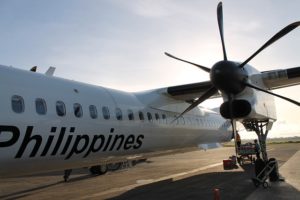 The coronavirus disease (COVID-19) crisis will slash revenues of the Philippine aviation sector by $4.481 billion and passenger demand by 47% this year compared to 2019, the International Air Transport Association (IATA) said in its latest regional analysis.
The coronavirus disease (COVID-19) crisis will slash revenues of the Philippine aviation sector by $4.481 billion and passenger demand by 47% this year compared to 2019, the International Air Transport Association (IATA) said in its latest regional analysis.
Job losses could run to 548,309 this year.
IATA identified the Philippines along with India, Indonesia, Japan, Malaysia, South Korea, Sri Lanka, and Thailand as priority countries that need to take action to survive the pandemic.
Air Carriers Association of the Philippines—comprising AirAsia, Cebu Pacific, Cebgo, Philippine Airlines and PAL Express—earlier sought government assistance, including waiver of airport charges and credit guarantees, as members accumulate monthly losses of P7 billion as a result of travel restrictions resulting from the enhanced community quarantine.
In a statement, IATA said its latest estimates indicate a worsening of the Asia Pacific aviation industry due to the impact of COVID-19.
The pandemic will see global airline passenger revenues drop by $314 billion in 2020, a 55% dive compared to 2019, IATA said.
READ: COVID-19 crisis is aviation’s ‘darkest hour’—IATA
Airlines in the Asia Pacific will see the largest revenue drop of $113 billion in 2020 compared to 2019 (-$88 billion in March 24 estimate), and a 50% fall in passenger demand in 2020 compared to 2019 (-37% in March 24 estimate).
These estimates are based on a scenario of severe travel restrictions lasting for three months, with a gradual lifting of restrictions in domestic markets, followed by regional and intercontinental.
“The situation is deteriorating. Airlines are in survival mode. They face a liquidity crisis with a US$61 billion cash burn in the second quarter. We have seen the first airline casualty in the region. There will be more casualties if governments do not step in urgently to ensure airlines have sufficient cash flow to tide them over this period,” said Conrad Clifford, IATA’s Regional Vice President, Asia-Pacific.
IATA called for a combination of:
• direct financial support
• loans, loan guarantees and support for the corporate bond market
• tax relief
“Providing support for airlines has a broader economic implication. Jobs across many sectors will be impacted if airlines do not survive the COVID-19 crisis. Every airline job supports another 24 in the travel and tourism value chain. In Asia-Pacific, 11.2 million jobs are at risk, including those that are dependent on the aviation industry, such as travel and tourism,” said Clifford.
“Airlines continue to perform an important role currently with the transport of essential goods, including medical supplies, and the repatriation of thousands of people stranded around the world by travel restrictions. And after the COVID-19 pandemic is contained, governments will need airlines to support the economic recovery, connect manufacturing hubs and support tourism. That’s why they need to act now – and urgently – before it is too late,” said Clifford.









